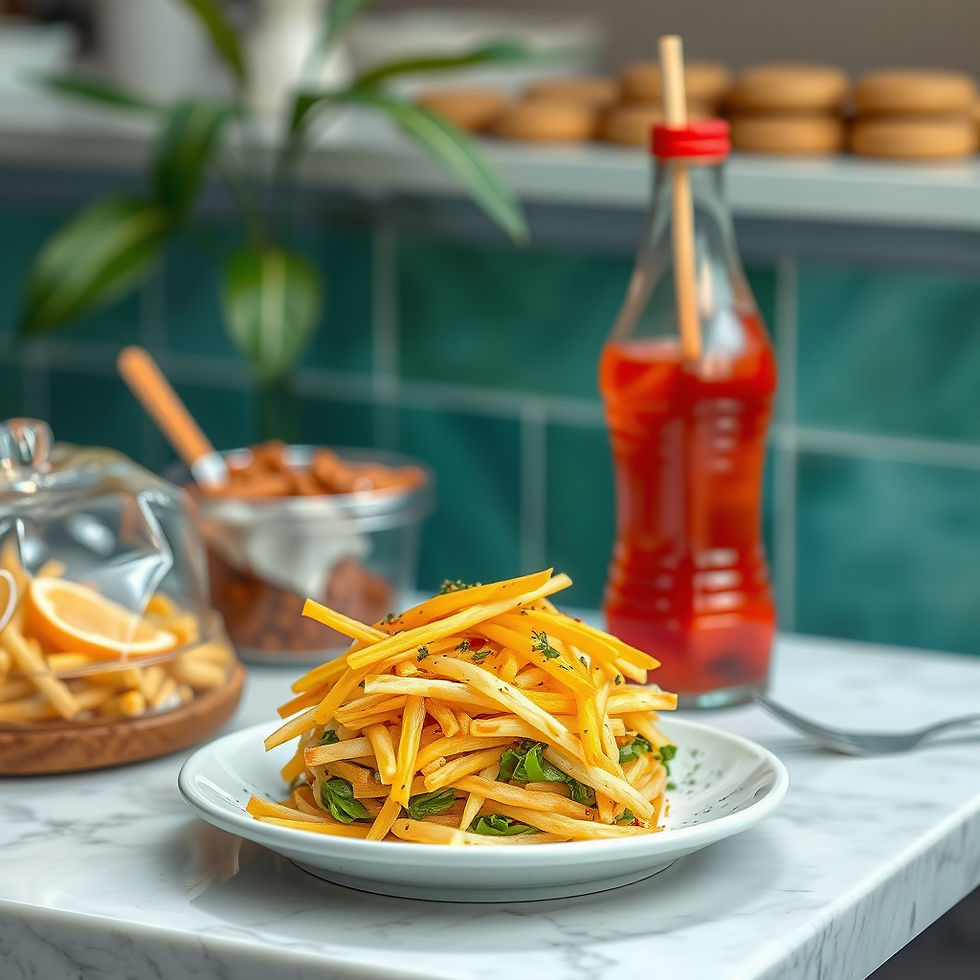Does Food Impact Your Vaginal Microbiome? Study Says 'Yes'
- Erika Rawes
- Jul 9, 2025
- 2 min read
A study was published on June 18, 2025 in Frontiers in Cellular and Infection Microbiology entitled "Dietary habits and vaginal environment: can a beneficial impact be expected? The research shows a clear connection between diet and vaginal microbiome health. The study examined the microbiota profiles of more than 100 women and found that dietary patterns—especially intake of animal proteins from red or processed meats, alcohol, carbohydrates, vegetable proteins, total fiber, and starch—directly influenced microbial balance.

Each microbiome is like its own unique community, but the vaginal microbiota is sometimes defined by its community state to help classify its current health. There are five common CST (Community State Types) --types I, II, III, and V are dominated by a single Lactobacillus species. But CST IV is typically considered disruptive, as it has a diverse bacterial group with no dominant species. CST III is dominated by a ‘less-protective’ species called Lactobacillus iners.
Certain eating habits tend to produce protective Lactobacillus species, like intaking less alcohol and animal proteins, and eating more linolenic acid (an essential omega-6 found in many seeds and oils). Researchers found that those who have a lot of animal protein intake, especially when derived from red and processed meat, this was positively associated with CST IV (that disruptive vaginal community condition we discussed above). Alcohol was also found to have a negative impact on the vaginal microbiome.
Women who consumed an excess of foods like sugar, saturated fat, and processed meat were more likely to have a non-Lactobacillus-dominated microbiota. In contrast, a diet rich in fiber, polyunsaturated fats, and plant-based foods was associated with healthier, Lactobacillus-dominant vaginal ecosystems.
These findings suggest that dietary choices can directly impact vaginal and reproductive health. Promoting certain dietary patterns may be a viable strategy for reducing infection risk and improving fertility outcomes in women of reproductive age.




Comments